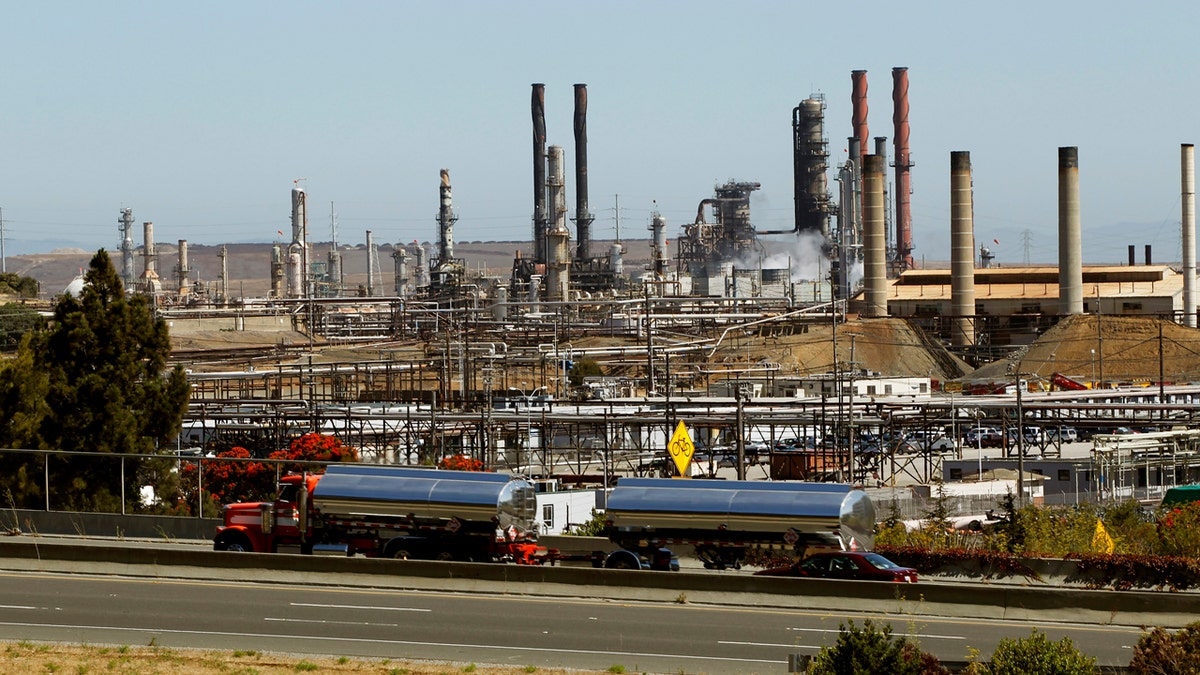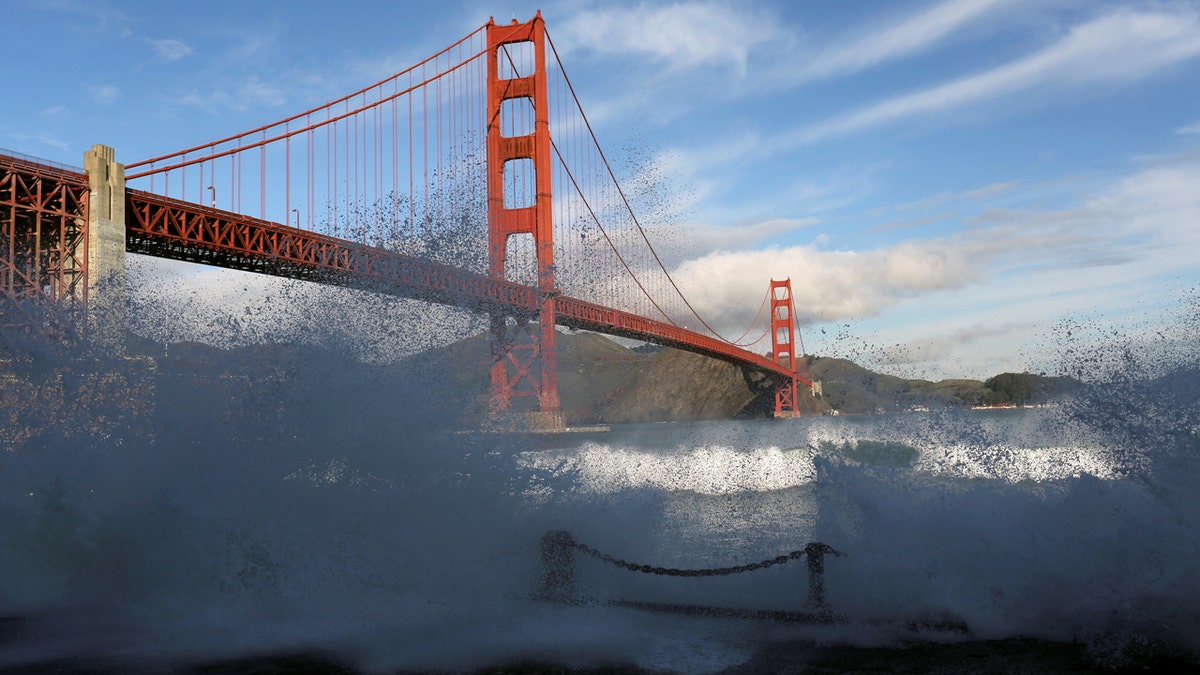
Chevron Corp's refinery is shown in Richmond, California August 7, 2012. (REUTERS/Robert Galbraith)
Fifteen state attorneys general have filed a brief in federal court pushing back on a lawsuit by the California cities of San Francisco and Oakland that would punish oil and gas companies for their role in climate change.
The attorneys general argued last week that if the U.S. District Court for the Northern District of California ruled in favor of the two California cities, it would likely cause broad, unintended consequences for cities and states across the country.
A decision against the oil companies could require them "to pay to build sea walls, raise the elevation of low-lying property and buildings, and construct other infrastructure projects necessary to combat the effects of global climate change,” according to the brief.
“Such a remedy could cost several billion dollars and seriously impact [oil companies’] ability to provide energy to the rest of the country. The brief said any ruling in the case "would be imposing limitations on commerce that takes place wholly outside California’s borders.”
The Bay Area cities individually filed suit against five oil companies – BP, Chevron, Shell, ConocoPhillips and ExxonMobil – last September. Several other cities and counties in California have followed, with similar legal moves. The suits don’t specify an exact dollar amount, but the long-term improvements of San Francisco’s seawall alone could be as much as $5 billion.
“These fossil fuel companies profited handsomely for decades while knowing they were putting the fate of our cities at risk,” San Francisco City Attorney Dennis Herrera said in a statement last September. “Now, the bill has come due. It’s time for these companies to take responsibility for the harms they have caused and are continuing to cause.”
The San Francisco and Oakland lawsuits claim the oil giants created a public nuisance as heat-trapping gases emitted from their fossil fuels produced a rise in sea levels.
“These companies knew fossil fuel-driven climate change was real, Oakland City Attorney Barbara Parker said. "They knew it was caused by their products and they lied to cover up that knowledge to protect their astronomical profits.

Waves crash against a sea wall in San Francisco Bay beneath the Golden Gate Bridge in San Francisco, California December 16, 2014. (REUTERS/Robert Galbraith)
For their part, oil and gas companies do not deny climate change exists. They argue these types of lawsuits will not help address the environmental crisis.
"Reducing greenhouse gas emissions is a global issue that requires global engagement and action," Melissa Ritchie, a spokesperson for Chevron, said in a statement. "Should this litigation proceed, it will only serve special interests at the expense of broader policy, regulatory, and economic priorities."
While plaintiffs have recently seen success in similar California courts rulings on public nuisance cases – a state judge ruled that paint companies were to be held liable for any damages caused by a lead based products – they have not seen such success on this issue.
U.S. District Judge William Alsup denied the two cities’ request to move the case to state court – arguing the scope of the issue puts the matter in federal jurisdiction.




